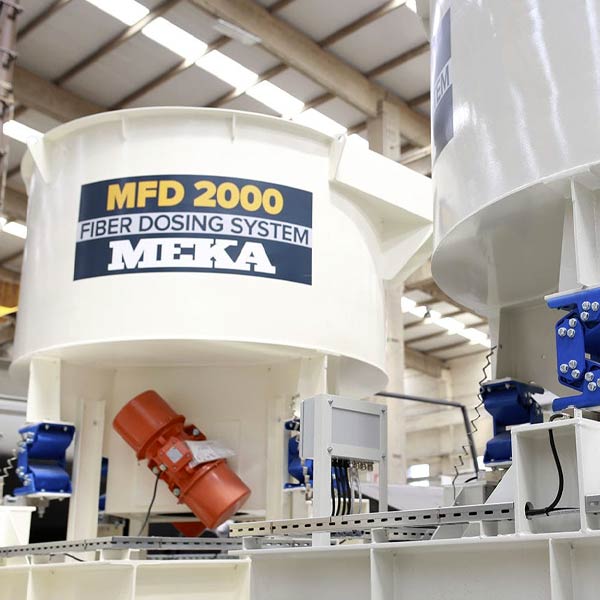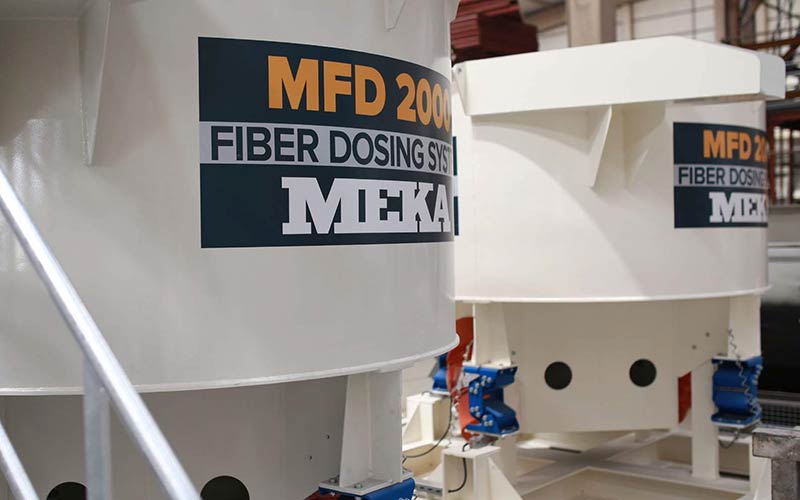Fibre Dosing

Introducing Fibres into Concretes
The use of fibres for reinforcing concrete has been used for thousands of years. Straw was utilised to reinforce clay bricks by the ancient Egyptians, and straw was also discovered in clay bricks many years before.
Thousands of construction sites around the world actively use fibres today and the research into the use of fibres continues today. The BULLDOG team can provide perfect turn-key solutions for introducing fibres into modern day concretes.
High-Capacity Production
In high-capacity production accurate weighing and feeding of fibres can only be done with the help of a fast fibre dosing system. It needs to be integrated into the concrete plant and its automation system as adding fibre bags into the truck mixers can neither achieve the desired mixing quality nor keep up with the plant capacity.
We provide turn-key fibre dosing and blowing packages for both concrete and asphalt production.


Strong Concrete for Lower Costs
Besides the improved strength, introducing fibre reduces the costs for production. It is proven by many researchers that the fibre added to concrete increases the concrete’s ability to strain-trans-form under pressure and bending. This results in lower costs for additional reinforcement on site.
Types of supported fibres: Steel, Plastic (Polyester, Polypropylene, Polyethylene), Glass, Natural materials (Wood cellulose, Bamboo)
Sensitive loadcells provide high accuracy weighing with less than 1% tolerance (depending on the type of fibre). The amount per batch can be adjusted by using indicators on the feeder or if fully integrated directly from the batch computer. With full integration several report types are available.
Strong Concrete for Lower Costs
Besides the improved strength, introducing fibre reduces the costs for production. It is proven by many researchers that the fibre added to concrete increases the concrete’s ability to strain-trans-form under pressure and bending. This results in lower costs for additional reinforcement on site.
Types of supported fibres: Steel, Plastic (Polyester, Polypropylene, Polyethylene), Glass, Natural materials (Wood cellulose, Bamboo)
Sensitive loadcells provide high accuracy weighing with less than 1% tolerance (depending on the type of fibre). The amount per batch can be adjusted by using indicators on the feeder or if fully integrated directly from the batch computer. With full integration several report types are available.

Bulldog are here to help
The Bulldog team are on-hand to help find the right solution for your project.
Please call us on 01371 873282 or send us your enquiry.

